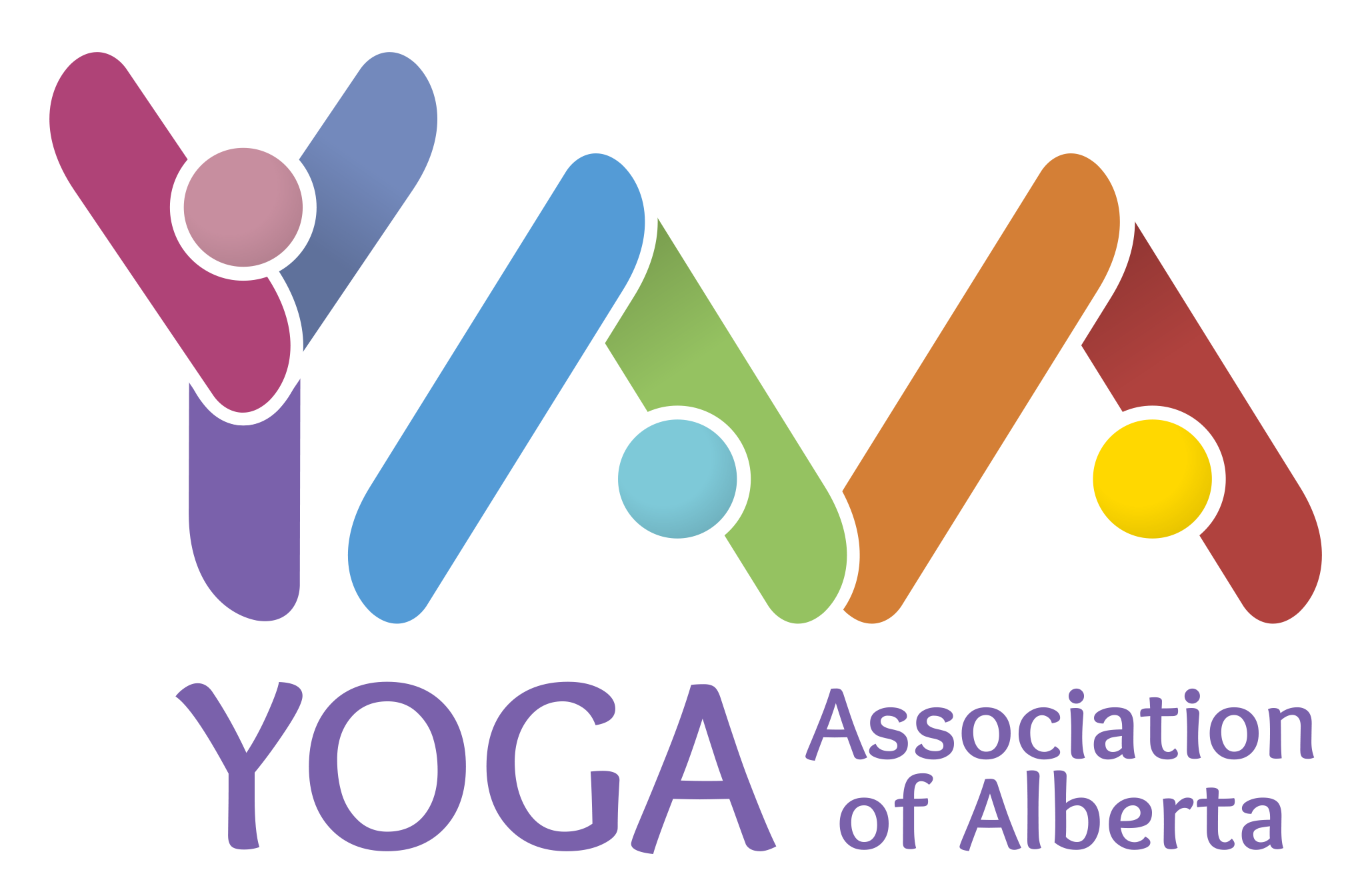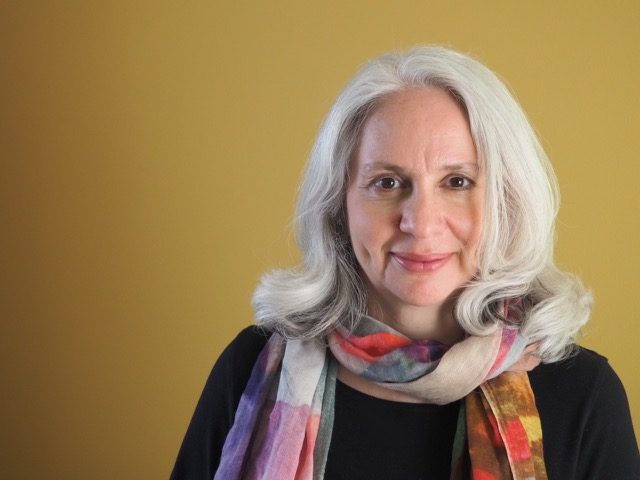In Loving Memory of Dr. Paula Fayerman, who so graciously shared her wisdom with YAA teachers before she crossed over.
Originally published in Yoga Bridge - FALL 2022 VOLUME 22 ISSUE 3
Saskia Rynsburger, tall, lithe, with red hair and a warm smile, was my beautiful yoga teacher in the 1990s. She would sing to us in her lovely, mezzo soprano voice as we lay on our mats in savasana: The river is flowing, Flowing and growing, The river is flowing, Back to the sea. Mother Earth carry me, A child I will always be, Mother Earth carry me, Back to the sea.1 Caught unaware, I would weep, hiding my tears from Saskia and the others in the class. I ran out of the class immediately after savasana. I had no idea why I was crying. Was it her gentle kindness that reached me? I now recognize the hurt and scared part of myself longing for the lullaby of safety and warmth.
We bring our history, everything about ourselves and our life, to a full yoga practice that includes asana, pranayama and meditation. All of our hurts, our shames, times when we were ignored, unseen and unheard accompany us when we practice. Our childhood may have been difficult, with what we call “Adverse Childhood Experiences” (ACEs), times when our young selves were left unsupported and when we felt uncared-for. The attachment bonds we form with our primary caregiver can determine our relationship to ourselves and the world throughout our life. These developmental traumas imprint in our nervous system and affect our musculoskeletal fascial and endocrine systems. These traumas can impact our posture and the way we think about ourselves and the world.
All of us experience difficult life circumstances either as children, adolescents or adults. So many types of overwhelm could potentially be traumatizing, including rejection, motor vehicle accidents, assault, and even yogic and spiritual experiences. But trauma is not so much about the specifics of what happened to us, but more about the impact it has on us. Traumatic experiences or shock can be described as: “too much, too fast, too soon. "Our system is unable to integrate the experience and we may be left with behaviours and neuromuscular defensive holding patterns that impact our posture, our ability to move or do asana, and that contribute to pain and our ability to regulate emotions. Thoughts and mood also reflect the traumas experienced. In yogic theory all the koshas are affected. And in this way trauma has much to teach us, that there is no separation between the koshas, between body, mind, and breath.
Yoga works with body posture, breath, attention and concentration. Memory, feelings and emotions can arise. These can be confusing and disorienting.If we are not taught that this is a normal part of practice, we can become overwhelmed and unable to cope. Yoga teachers might not recognize in themselves or in their students the symptoms and emotions arising from past experiences that reflect current difficulties within a yoga practice.
The defense mechanisms come in so quickly to keep us safe. We know these typically as fight/flight/freeze. But do we recognize these reactions in ourselves, and if we are teachers, in our students?
Fight can show up as anger, blaming or condemning others; flight makes us run away, leave a class, shut down; freeze can be paralyzing, and we may dissociate. Another defense is “fawning behaviour,” pleasing others to create safety for ourselves.
A basic understanding of trauma aids us in our yoga practice and facilitates our growth and self understanding.We can learn about our defense mechanisms and how body postures arise to keepus protected, how adverse childhood experiences and attachment may impact us and how difficult and overwhelming experiences of adulthood may be influencing our behaviour, emotions and thoughts.
Yoga practice allows us to bring awareness to what may be unconsciously motivating us and contributing to our reactivity. When we automatically respond defensively, we limit our freedom and ease in life. I tend to think about the traumas we carry like scars, requesting healing. Like the samskaras in yoga philosophy, traumas leave an imprint or residue in our system. Yoga is a system of healing, revealing the samskaras, allowing us to integrate them so they no longer unconsciously motivate us.
Fortunately, we are learning more about the science and neurobiology of trauma and also ways of addressing and healing it. We know that the “talk therapy” approach in psychotherapy has limitations with respect to healing trauma in the body. Body centered psychotherapeutic approaches like Somatic Experiencing, Sensorimotor Psychotherapy and Deep Brain Reorienting take body centered cues for healing and resonate in many ways with yoga asana and meditation practice. Yoga unites body and mind, offering us a different way to work, developing awareness of body sensations, thoughts, beliefs and emotions and facilitating integration. “Trauma-sensitive yoga” (TCTSY) and "trauma-informed yoga” trainings are now readily accessible on line and through workshops for yoga teachers.2 Many books that use yoga to treat trauma are also available.3
I think our traumas can teach us much about yoga practice. The intersections between trauma theory and philosophies in Yoga and Buddhism are worthy of further discussion. Informing myself about trauma has been crucial for my healing and my yoga practice. Years ago, I was overwhelmed, crying and confused hearing Saskia’s beautiful voice in song. Now I smile at that memory and take care of myself, knowing that young part of myself, overwhelmed and crying, escaping the class, was longing to be seen and heard. The song touches me, the longing of river meeting sea, and still brings me to my knees. Now not in sadness and overwhelm, but in its poignancy and power to hold me in beauty.
Paula Fayerman was a Family Doctor. She certified as a Yoga Teacher in 2000 (500-hour training through the Yoga Centre of Calgary), as a Yoga Therapist through the International Association of Yoga Therapists (C-IAYT), and as a YAA Senior Teacher in 2022. Sadly, we lost the comfort of her physical presence in February, 2024. See the Spring 2024 Yoga Bridge magazine for a tribute in memoriam.
Donations to the Paula Fayerman Memorial Fund are graciously accepted through the Canada Helps form on our Donate page. (Click the drop-down box that says "Fund" to select it, or make a note in your e-transfer - directions noted on the page). Funds will be used to continue the YAA's support of free or subsidized trauma-informed training for Alberta yoga teachers.
All YAA Full & Lifetime Members can access YAA's free Professional Development webinar "The Window of Tolerance", presented by Dr. Paula Fayerman. Please see the Video Library for access.
Footnotes:
- Many versions of this song are available online. This version by Gila Antara is the tune I remember from my yoga classes. https://www.youtube.com/watch?v=yE12JThdPpo However, I remember Saskia singing the lyrics: “Mother carry me, in your arms I’ll always be.” This was a line that panged my heart.
- Trauma-sensitive yoga refers specifically to a program known as Trauma Center Trauma-Sensitive Yoga (TCTSY).This technique is a “clinical intervention for complex trauma or chronic, treatment-resistant post-traumatic stress disorder(PTSD).” The TCTSY website has much information on this topic, including information about trainings and resources:https://www.traumasensitiveyoga.com/ Trauma-informed yoga starts from the understanding most people have experienced some level of trauma or significant life stress. This approach fosters a sense of safety, support, and inclusivity for all yoga students. This website gives a good summary: https://psychcentral.com/health/what-is-trauma-informed-yoga There are many training programs and certifications in trauma-informed yoga. One is: https://howwecanheal.com/y4t/
- Books of interest are: Overcoming Trauma through Yoga: Reclaiming your Body by David Emerson and Elizabeth Hopper PhD and The iRest Program for Healing PTSD by Richard C.Miller PhD. For those interested in mindfulness & meditation there is Trauma-Sensitive Mindfulness by David A. Treleaven.

